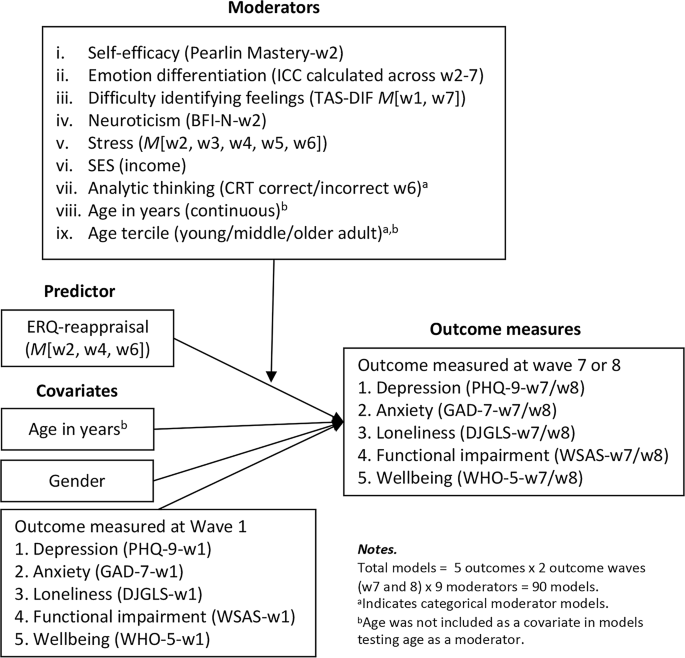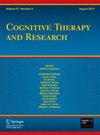For Whom and What Does Cognitive Reappraisal Help? A Prospective Study
IF 2.8
3区 心理学
Q2 PSYCHOLOGY, CLINICAL
引用次数: 1
Abstract
Abstract Purpose Recent literature highlights that no emotion regulation strategy is universally helpful or harmful. The present study aimed to build understanding of for whom and what cognitive reappraisal is helpful, by testing the influential hypothesis that reappraisal is most helpful when there is good individual or situational capacity to apply this strategy effectively. Methods The present study tested how eight variables theorised to be associated with the effectiveness of reappraisal moderated the link between reappraisal use and changes in depression, anxiety, loneliness, functional impairment, and wellbeing in a nationally representative sample, over three ( n = 752) and twelve month ( n = 512) periods. Results Contrary to our hypothesis, we found reappraisal was most beneficial for individuals or in situations characterised by additional vulnerabilities (e.g., average or high levels of stress, neuroticism, difficulty identifying feelings, or poor self-efficacy). Results also support prior evidence that reappraisal can be more helpful for improving wellbeing than reducing mental health symptoms. Conclusions Altogether, our findings provide new insight into the complex nature of relationships between reappraisal and psychological outcomes. A key clinical implication is that reappraisal may be particularly helpful for people with stable vulnerabilities (e.g., neuroticism).

认知重评对谁有帮助?对什么有帮助?前瞻性研究
摘要目的最近的研究表明,没有一种情绪调节策略是普遍有益或有害的。本研究旨在通过检验一个有影响力的假设,即当有良好的个人或情境能力来有效地应用认知重评价策略时,重评价是最有帮助的,从而建立对认知重评价对谁和什么有帮助的理解。方法:本研究在全国代表性样本中测试了八个变量如何与重新评估的有效性相关,这些变量在三个(n = 752)和十二个月(n = 512)期间调节了重新评估使用与抑郁、焦虑、孤独、功能障碍和幸福感变化之间的联系。与我们的假设相反,我们发现重新评估对个体或在具有额外脆弱性特征的情况下(例如,平均或高水平的压力,神经质,难以识别情感或低自我效能)最有益。研究结果也支持了先前的证据,即重新评估对改善幸福感比减少心理健康症状更有帮助。总之,我们的研究结果为重新评估和心理结果之间关系的复杂性提供了新的见解。一个关键的临床意义是,重新评估可能对具有稳定脆弱性(例如,神经质)的人特别有帮助。
本文章由计算机程序翻译,如有差异,请以英文原文为准。
求助全文
约1分钟内获得全文
求助全文
来源期刊

Cognitive Therapy and Research
PSYCHOLOGY, CLINICAL-
CiteScore
5.30
自引率
0.00%
发文量
52
期刊介绍:
Cognitive Therapy and Research (COTR) focuses on the investigation of cognitive processes in human adaptation and adjustment and cognitive behavioral therapy (CBT). It is an interdisciplinary journal welcoming submissions from diverse areas of psychology, including cognitive, clinical, developmental, experimental, personality, social, learning, affective neuroscience, emotion research, therapy mechanism, and pharmacotherapy.
 求助内容:
求助内容: 应助结果提醒方式:
应助结果提醒方式:


